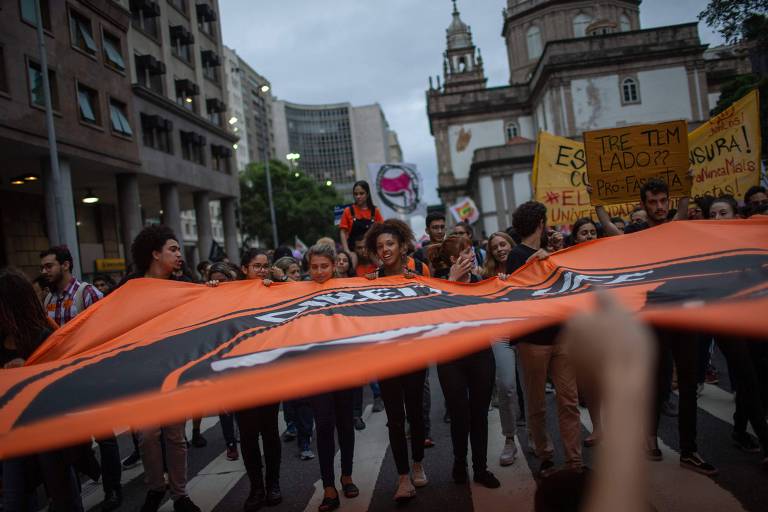An exclusive survey made by Folha's reporters show that since September 2017 there were at least 41 crimes against freedom of speech in Brazil, including cases of censorship and self-censorship.
The review found episodes in all five Brazilian regions. Most of them originated from court decisions, but there were also instances resulting from actions from police officers, district attorneys, and mayors, as well as private organizations.
One of the most typical cases of restriction of free speech in the survey was an order from the Electoral High Court (TSE) that forbid the then-candidate Jair Bolsonaro to utter criticism to the Electoral court itself.
By six votes to one, the court's justices ordered the removal of 55 links to a video in which Bolsonaro questioned the electronic ballot boxes' reliability.
At the time, TSE's president Justice Rosa Weber said that criticism is legitimate in the rule of law, but there are limits. "Criticism with the intent of weakening the Electoral Justice system and take away its credibility will find limitations."
According to Cristina Costa, the coordinator of the Observatory of Communication, Freedom of Speech and Censorship at Universidade de São Paulo, Brazil has a censorship culture that comes from the colonial times."Even before we had universities, publishing houses and press outlets, we already had censorship," she says. "At the beginning of the 20th century, it was forbidden to play guitar in certain public places."
It's not a coincidence then that cultural activities were among the primary targets of crimes against free speech, according to the study. In São Paulo alone, a stage play was forbidden, a documentary interrupted its exhibition and minors weren't allowed in an art exposition, even when accompanied by their parents.
Not even famous Brazilian painter Cândido Portinari escaped the censorship. Last year, Santander Cultural Institute, in Porto Alegre, canceled the exposition "Queermuseum," that had 270 artworks, including a Portinari painting. The show's theme had a sexual nature and suffered a massive outcry in social media.
During the presidential campaign, Justice Luiz Fux from the Brazilian Supreme Court forbid Folha from interviewing former president Luiz Inácio Lula da Silva from jail, although requests to interview inmates are reasonably frequent.
In 2015, for example, TV presenter Gugu Liberato obtained court permission to interview Suzane Richthofen, convicted of murdering her parents, in jail.
But in his deliberations, Justice Fux wrote that the publishing the interview with Lula could "cause a high risk of misinformation."
Last week, the Electoral Justice authorized a series of raids in several universities, bringing complaints from the Brazilian Bar Association (OAB) and the Brazilian Association of Deans of Federal Universities and Colleges.
Officers entered college classrooms in several states to check the ideological content of lectures, and confiscated materials like banners, stickers, and flyers defending democratic values. The Supreme Court reacted by unanimously suspending all these sorts of operations.
Translated by NATASHA MADOV
Read the article in the original language
